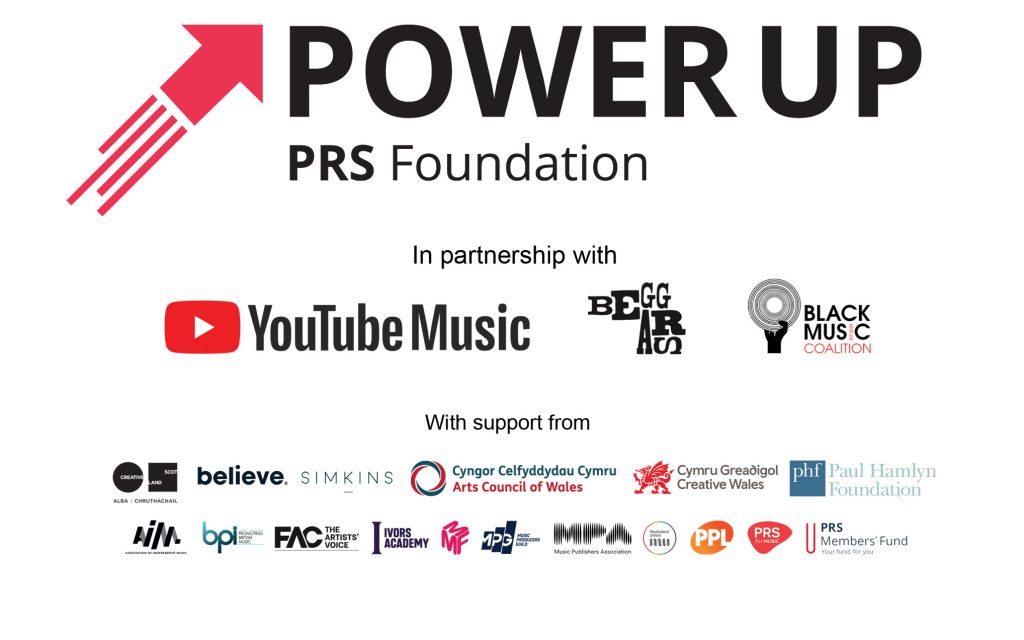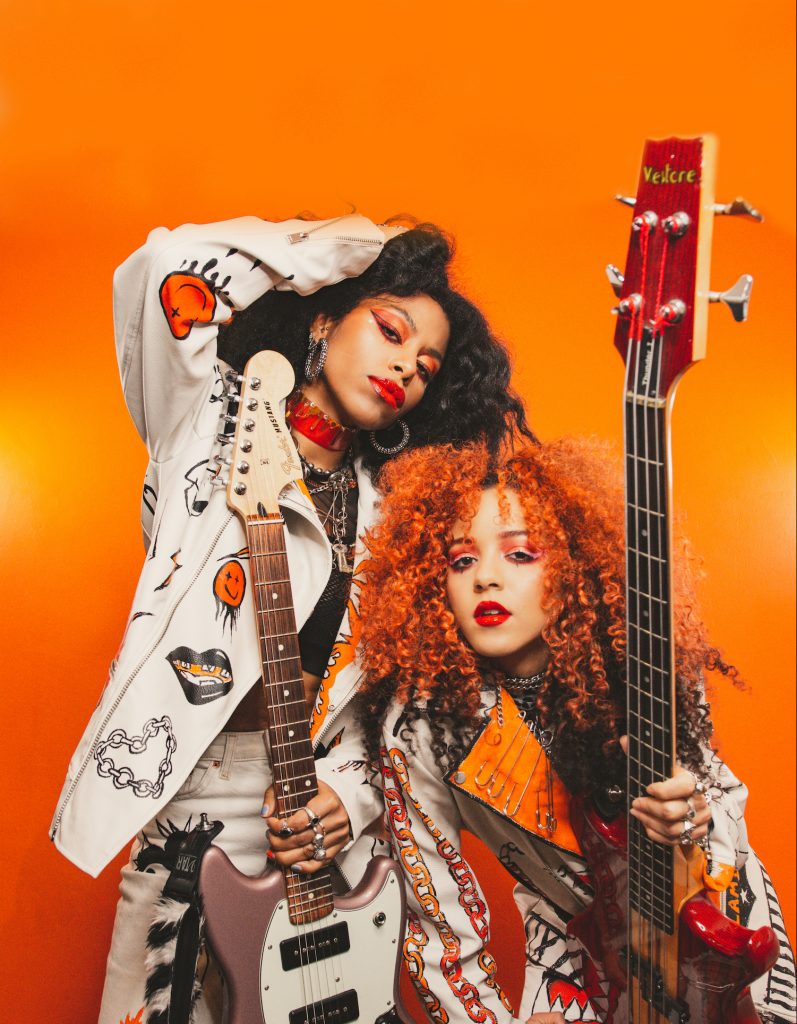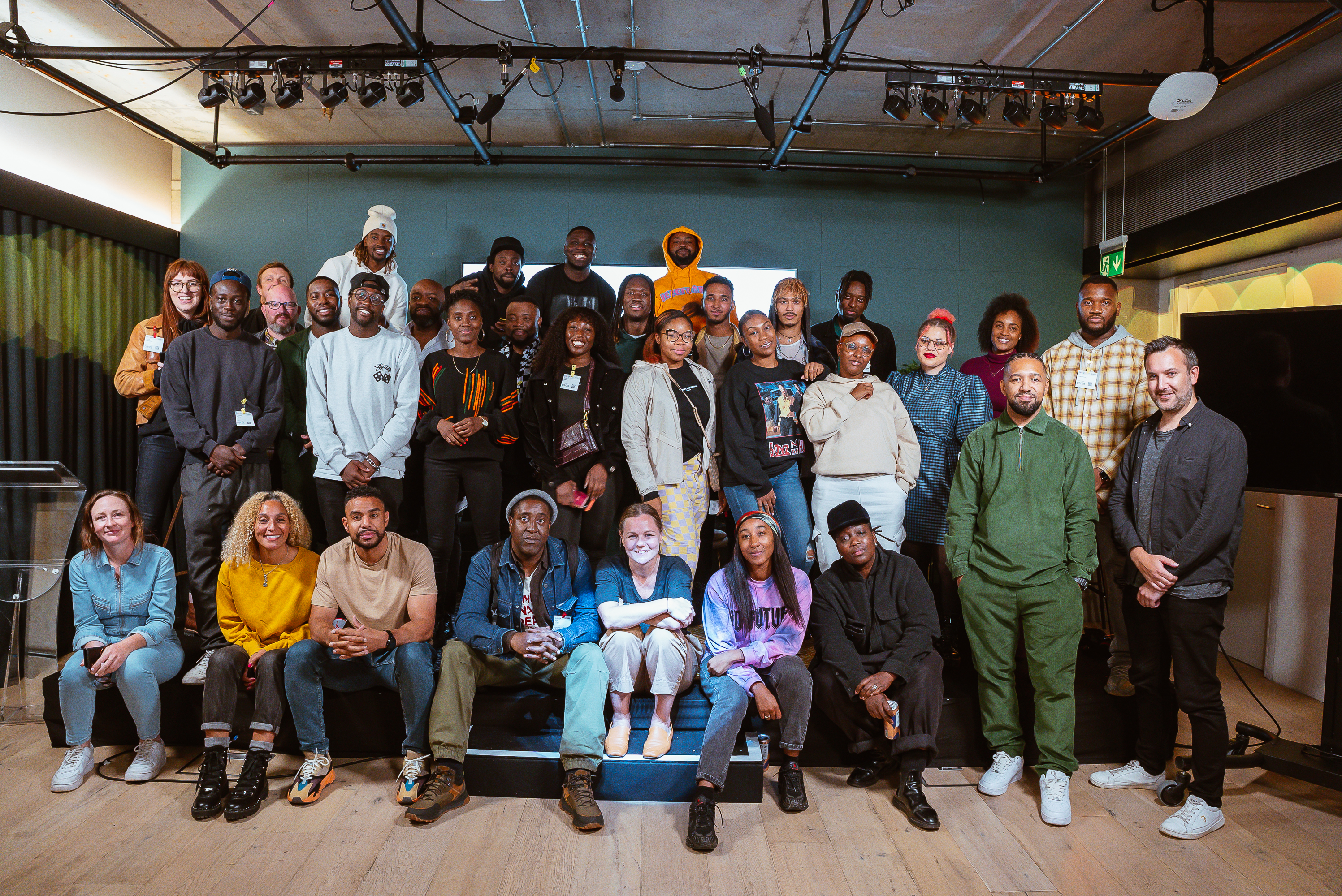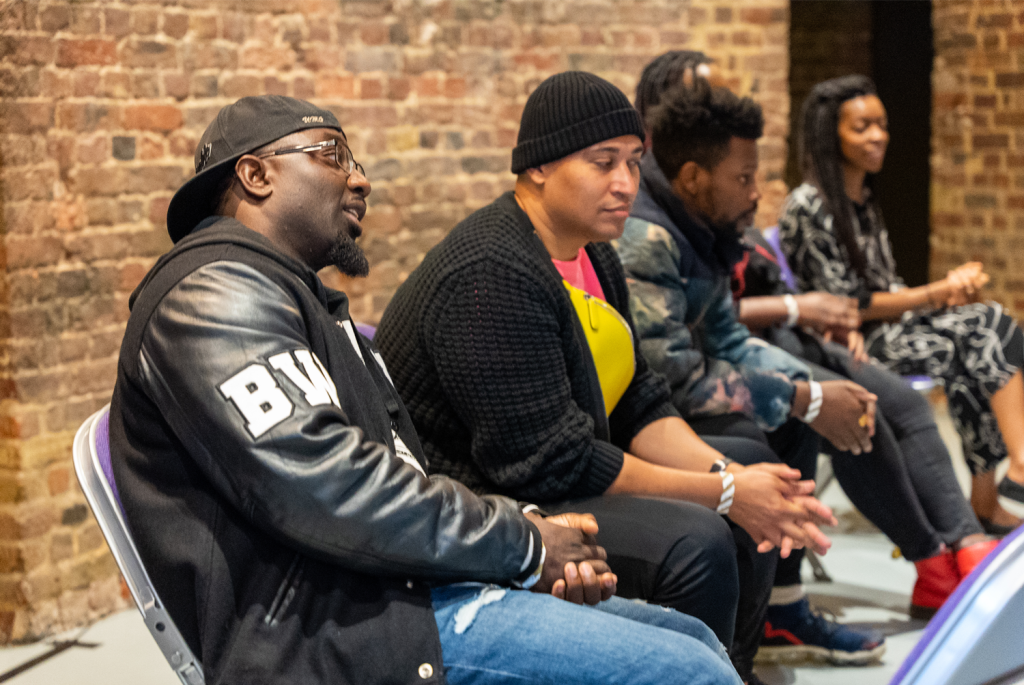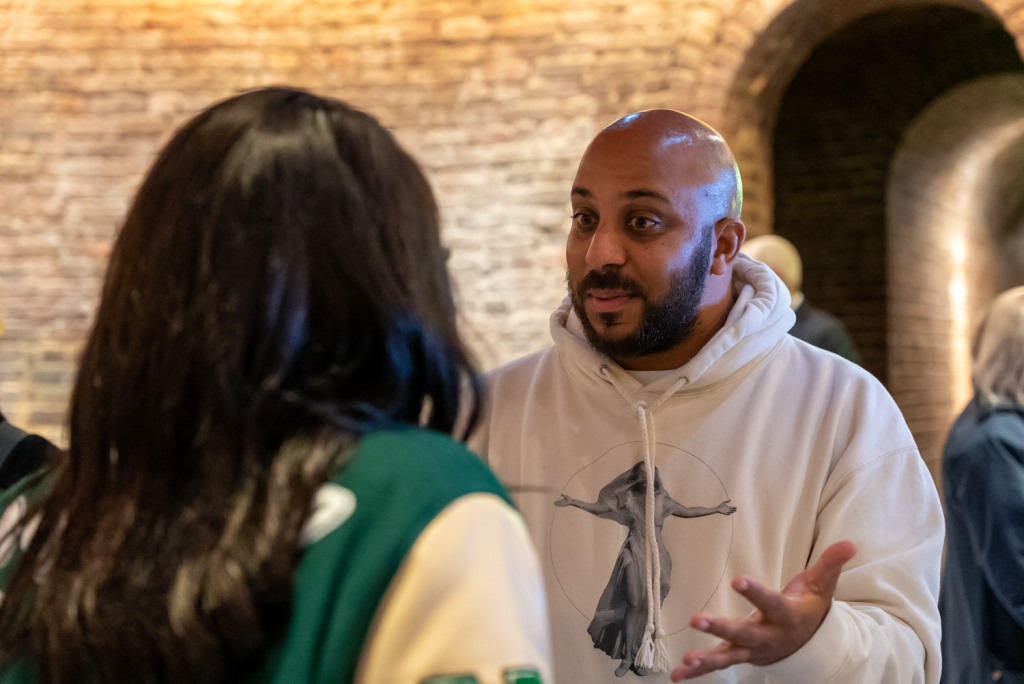POWER UP Background

How it started
The Black Lives Matter movement highlighted the structural and systemic anti-Black racism that occurs in today’s society. In the run up to Black Out Tuesday and #TheShowMustBePausedUK in June 2020, the PRS Foundation team and board started the process of deeper and more open discussions which brought to light the many barriers facing Black people working in the UK music sector.
Many companies were galvanised to reflect, connect with Black communities and to support the Movement. But to bring about meaningful and lasting change, public solidarity is not enough. It must be followed by commitments, accountability and action.
“Having been on the receiving end of unconscious bias and the structural and systemic anti-Black behaviour that occurs within our industry, I know first-hand just how important POWER UP is. Following on from Black Out Tuesday and seeing all of the posts of solidarity, I realised that there was an opportunity to seize the moment and put something in place that would encourage the dialogue to last beyond the 2020 BLM movement and have a lasting impact over the next decade and beyond. Step forward Power Up!” Ben Wynter, POWER UP Co-Founder
We established a POWER UP Executive Steering Committee in late 2020 to strategically steer the initiative, and more than 80 Black music executives and creators have come together to contribute and steer POWER UP. Senior POWER UP Manager, Yaw Owusu chaired seven Focus Groups covering Recording and Publishing, Live, Platforms, Gender, Sexuality, Enterprise and Regionality.
At its core, the POWER UP programme responds to the barriers facing Black music creators and Black industry professionals in the UK music industry.
Why is POWER UP needed?
The significant barriers POWER UP is addressing include:
- Structural and systemic racism and injustice
- Everyday prejudice in the workplace
- Marginalisation and underrepresentation on stage, in studios, in the media and in every genre and sub-sector of the music industry
- Lack of visibility, particularly in senior roles, at executive level, in Board rooms and for Black-led companies and organisations
- Economic inequality
- Inequitable financial benefit
The UK Music 2020 Diversity Report showed that:
- Only 7.8% of the music industry workforce surveyed identifies as Black
- There is a significant drop in representation as the workforce ages
- Those who identified as Black or Black British represented 15.8% of the workforce at apprentice/intern level and 12.6% of the workforce at Entry Level
- But this lowers to 6.4% at Senior Level
- Those who identified as White accounted for 65.4% of the workforce at Entry Level and 80.1% at Senior Level
- The report also demonstrated income disparity
*Please note that this figure from the 2022 UK Music Workforce Diversity Report has decreased from 7.8% in 2020
The updated UK Music 2022 Diversity Report showed that:
- Only 7% of the music industry workforce surveyed identifies as Black, a decrease of 0.8%, perhaps due to the impact of COVID-19 which disproportionately impacted underrepresented communities
- Despite increasing efforts across the industry, representation has decreased in all areas, including at senior career levels
In a survey conducted by PRS Foundation, out of 400 Black music creators applying to our targeted Sustaining Creativity Fund round for Black creators impacted by Covid-19:
- 78% said they had experienced racism within the music industry, with 100% of Classical applicants saying they have experienced racism
- 90% agree that there is a lack of visibility of Black industry professionals in senior roles
- 69% agree that music funding is less accessible for Black talent
In 2021, our friends at Black Lives in Music conducted an extensive survey and published a pioneering report which can be downloaded here. The ‘Being Black in the UK Music Industry’ 2021 report includes crucial survey results to outline the personal experience of Black music creators and industry professionals. The survey engaged with nearly 2,000 respondents. Key findings include:
- 86% of Black music creators and 88% of Black industry professionals agree that there are (racial) barriers to progression
- 31% of Black music creators and 36% of Black industry professionals believe their mental health and wellbeing has worsened since starting their music career
- Only 38% of Black music professionals earn 100% of their income from music (vs. 69% of White music professionals)
The report further breaks down the complex racial barriers and anti-Black racism which is rife in the sector while also breaking down intersectional barriers and suggesting indsutry-wide solutions. Power Up is proud to support the report and to work closely with the Black Lives in Music team to push for meaningful change.
Arts Council England’s Creative Case Data Report for 2019-20 showed that only: 13% of Workforces, 11% of Chief Executives, 10% of Managers, 11% of Chairs, and 17% of Board Members at National Portfolio organisations are held by people of Black or minority ethnic origin. This compares to 18% of Artists and 10% of Audiences (and only 6% of audiences for Music-based NPOs).
The underrepresentation in music is stark when considering diverse populations across the UK and particularly in the context of a high workforce concentration in major cities including London, Birmingham and Manchester.
Click here for more evidence of the need for Power Up
Who is involved?
POWER UP was co-founded by PRS Foundation and Ben Wynter (Founder, Unstoppable Music, Entrepreneur and Outreach Manager, AIM and formerly Industry Fund Manager at PRS Foundation).
Partners
Managed by PRS Foundation in partnership with YouTube Music, Beggars Group and the Black Music Coalition, the initiative brings several music industry partners across all sectors together to accelerate change.
Supporters include Creative Scotland, Believe, Simkins, Arts Council of Wales, Paul Hamlyn Foundation, plus AIM, the BPI, the FAC, The Ivors Academy, the MMF, the MPA, MPG, The Musicians’ Union, PPL, PRS for Music and the PRS Members’ Fund, as well as Associate Partner, Daft Springer, who each bring added-value support to POWER UP Participants. Find out more about our Partners here.
Steering the Programme
More than 80 Black music executives and creators have come together to contribute and steer ‘Power Up’.
Established in late 2020 to strategically steer the initiative, a Power Up Executive Steering Committee features:
Keith Harris OBE, MD Keith Harris Music Ltd. (Artist Manager, Consultant)
Paulette Long OBE, Music Publisher, Consultant, Deputy Chair, UK Music Diversity Task Force
Ammo Talwar MBE, Punch Records & UK Music Diversity Task Force Chair
Sheryl Nwosu, Lawyer & Chair of the Black Music Coalition
Mulika Sannie, Legal Counsel, Music, Google
Jackie Davidson MBE, JD Management, PPL Board, MPA Board, MMF Custodian Board
Ben Wynter, Co-Founder of POWER UP, Founder Unstoppable Music, A&R Director 0207 Def Jam & AIM Entrepreneur and Outreach Manager
Char Grant, A&R Director 0207 Def Jam, Founder of The Debrief & Black Music Coalition Executive Committee Member
Natalie Wade MBE, Founder of Small Green Shoots & Co-Founder of The Cat’s Mother
Lorna Clarke, PRS Foundation Trustee
Les Spaine, CEO, Spaine Music Company
Danny D, Tim & Danny Music (Stellar Songs, Delirious Blacksmith Records)
Taponeswa Mavunga, Director of Africa, Sony Music
Yaw Owusu, Senior POWER UP Manager, PRS Foundation (Chair)
Joe Frankland, CEO, PRS Foundation
Focus Groups
Senior POWER UP Manager, Yaw Owusu set up and chaired seven Focus Groups covering:
- Recording and Publishing
- Live
- Platforms
- Gender
- Sexuality
- Enterprise
- Regionality
Ambassadors
POWER UP Ambassadors include MC and actor Kano; Award-winning BBC Presenter and Music Entrepreneur DJ Target; artist Ray Blk; Disturbing London Founder Dumi Oburota; Co-President of 0207 Def Jam, Alex Boateng; LinkUp TV Founder Rashid Kasirye; and singer-songwriter Sabrina Washington.
And through an open call process each year, the POWER UP Participant Programme will support 20 Black music creators and 20 Black executives and industry professionals.

